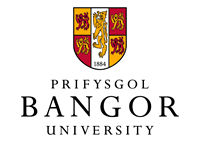Dr A Ellison, Prof Stuart Jenkins
No more applications being accepted
Competition Funded PhD Project (European/UK Students Only)
About the Project
The ecological impact of artificial light at night has been a rapidly growing field of global change science in recent years. While understanding of direct lighting impacts (for example street lights) has improved dramatically, the effect of artificial skyglow (light that is scattered in the atmosphere and reflected back to the ground) on species behaviours and distributions is lacking. Skyglow extends the geographical influence of artificial lighting from metres to kilometres. It interferes with the detectability of natural light cycles associated with the passage of the moon, which enable many organisms to time important biological events, and orientate themselves in space using the celestial compass. 22% of the world’s coastal regions are now exposed to artificial skyglow, the ecological consequences of which are largely unknown.
In this project, based at Bangor University and in collaboration with Aberystwyth and Plymouth Universities, the student will use a combination of experimental, observational and remote sensing approaches to explore the impacts of artificial skyglow on the chronobiology of intertidal macro-invertebrates from gene expression, to individual and population level effects. The research will focus on two common UK taxa known to utilise lunar light cycles to inform their movement and reproductive biology, the sandhopper Talitrus saltator, and the sand midge Clunio spp.
The project offers a wealth of opportunities for the student to gain knowledge of, and experience in, molecular biology; chronobiology; animal husbandry; marine fieldwork and science communication. The studentship will be based within the Molecular Ecology and Fisheries Genetics Laboratory (http://mefgl.bangor.ac.uk/), a world leader in the analyses of molecular data from aquatic biota. It offers a dynamic and supportive training environment for young scientists. There will be further opportunities for the student to work and train at both Aberystwyth (Wilcockson Lab) and Plymouth (Davies Lab) universities during the project.
Essential skills are a minimum 2:1 BSc (or equivalent in Life Sciences), with good numerate skills and enthusiasm for chronobiology and marine ecology. Desirable skills are molecular laboratory and/or animal experimental experience, a desire for UK coastal fieldwork.
For further enquiries, please contact Dr Amy Ellison, [Email Address Removed].
Funding Notes
The studentship is only available to applicants from the UK and EU.
Each student will be supported by the tax-free stipend (£15,009 in 2019/20), typically for 3.5 years. In addition, for eligible students, the award will cover EU/UK fees.

 Continue with Facebook
Continue with Facebook

